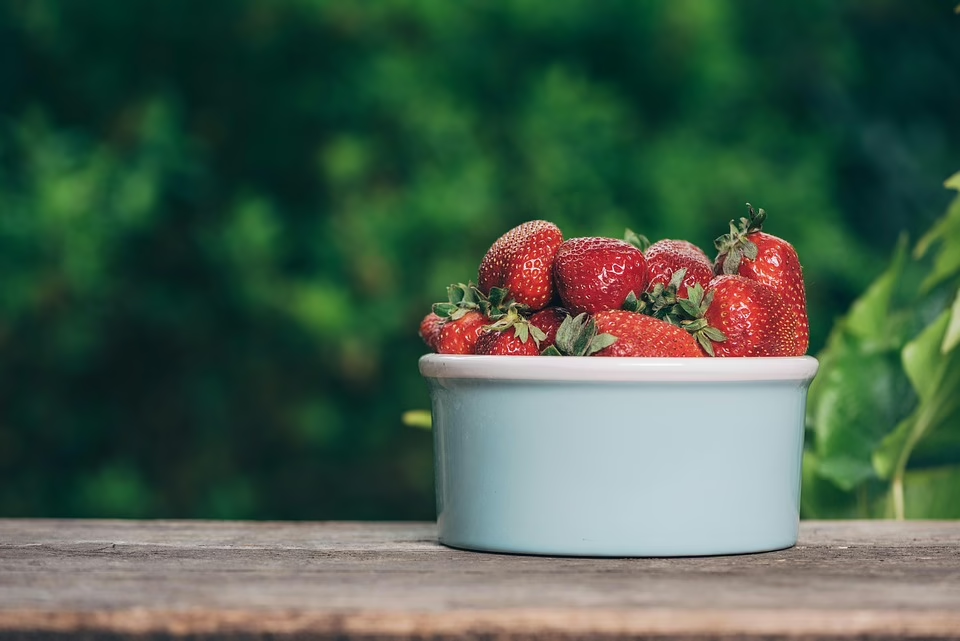Smart Snacking: How to Keep Your Energy Up Without the Crash
Introduction
In today’s fast-paced world, snacking has become an integral part of our daily lives. Whether we are at the office, studying for exams, or just trying to maintain our energy levels throughout the day, snacks play a pivotal role. However, not all snacks are created equal. The difference between a smart snack and an unhealthy one can significantly affect your energy levels, mood, and overall health. In this article, we’ll explore what makes a snack “smart,” discuss some choices for staying energized throughout the day, and provide practical tips on how to snack wisely.
The Importance of Snacking
Energy Management
The body requires a constant supply of energy to function efficiently. Over time, blood sugar levels can fluctuate due to various factors, including meal timing and composition. Smart snacking helps to stabilize blood sugar levels, preventing the energy crashes often associated with high-sugar snacks. When choosing snacks thoughtfully, you can ensure a more consistent energy supply throughout your day【1】.
Nutritional Value
Many people overlook the nutritional aspect of snacking. Instead of viewing snacks as simply a means to quell hunger, consider their potential to contribute to your daily nutritional needs. Smart snacks can increase your intake of essential nutrients, vitamins, and minerals while minimizing empty calories【2】.
Weight Management
Snacking can be beneficial for weight management when approached correctly. Healthy snacks can keep you satiated, reducing the likelihood of overeating at meals. Moreover, incorporating nutrient-dense snacks can help maintain metabolism while offering essential nutrients【3】.
What is a Smart Snack?
Key Components of Smart Snacks
A smart snack should ideally consist of:
- Protein: Helps in muscle repair and growth, and keeps you feeling full longer【4】.
- Healthy Fats: Provide sustained energy and help with nutrient absorption【5】.
- Fiber: Aids in digestion and contributes to a sense of fullness【6】.
- Complex Carbohydrates: Offer quick yet sustained energy【7】.
Avoiding Empty Calories
When selecting snacks, it’s crucial to avoid options high in sugar, unhealthy fats, and refined carbohydrates. These types of snacks can lead to a quick energy spike followed by a crash, leaving you feeling more fatigued than before【8】.
Smart Snack Ideas
1. Greek Yogurt with Berries and Nuts
Greek yogurt is rich in protein and can serve as a good base for other healthy additions. Top it with fresh berries for antioxidants and fiber, and add a sprinkle of nuts for healthy fats and additional protein【9】.
2. Hummus and Vegetables
Hummus is made from chickpeas, which provide protein and fiber. Pair it with various vegetables like carrots, cucumbers, or bell peppers, which are low-calorie options that add crunch and nutrients【10】.
3. Nut Butter on Whole Grain Toast
Nut butters like almond or peanut butter provide healthy fats and protein. Spread it over whole grain toast for a satisfying snack that offers complex carbohydrates【11】.
4. Cottage Cheese with Pineapple
Cottage cheese is another excellent source of protein. Combining it with pineapple not only adds sweetness but also contributes vitamin C and fiber【12】.
5. Energy Bites
Making your own energy bites using oats, nut butter, honey, and dark chocolate chips can be a delicious and nutritious option. These bites can provide a balance of carbohydrates, protein, and healthy fats【13】.
6. Hard-Boiled Eggs
Hard-boiled eggs are a portable, protein-packed snack. Rich in essential amino acids, they can help keep hunger at bay【14】.
7. Dark Chocolate with Almonds
Moderate consumption of dark chocolate can offer antioxidant benefits. Pair it with almonds for a dose of healthy fats and fiber, making this a delectable, energy-boosting option【15】.
Tips for Smart Snacking
Plan Ahead
Portion Control
It’s easy to overindulge in snacks, particularly when they’re accessible. Preparing pre-portioned snacks can help control calorie intake and prevent mindless eating【16】.
Mindful Eating
Pay attention to your eating habits. Eating slowly and savoring each bite can enhance enjoyment and help you recognize feelings of hunger and fullness【17】.
Stay Hydrated
Sometimes, what feels like hunger may actually be thirst. Ensure you’re drinking enough water throughout the day, as staying hydrated can support energy levels and metabolic functions【18】.
Common Snacking Pitfalls
Sugary Snacks
Be wary of snacks that contain added sugars. Check the labels, as many seemingly healthy options still contain high levels of sugar that can lead to crashes【19】.
Processed Foods
Highly processed snacks often contain unhealthy fats, preservatives, and additives. Choose whole food options whenever possible for better overall health【20】.
Snacking for Different Lifestyles
For Students
Busy students often rely on quick and convenient snacks. Stocking up on healthy, easy-to-carry options like nuts, protein bars, or fruit can sustain energy levels during study sessions【21】.
For Busy Professionals
Professionals with tight schedules can benefit from preparing snacks in advance. Foods like whole grain wraps, yogurt, or veggie packs can be prepped and stored for quick access during break times【22】.
For Athletes
Active individuals require snacks that support their energy expenditure. Snacks high in protein and carbohydrates, like smoothies or energy bars, can help with muscle recovery and energy replenishment【23】.
Conclusion
Smart snacking is about making informed choices that fuel your body and support your lifestyle. By understanding the elements that contribute to a nutritious snack, you can keep your energy levels steady without the dreaded crash. Plan ahead, choose wisely, and remember that the right snacks can make a significant difference in how you feel.
References
- Importance of Snacking
- Nutritional Value of Snacks
- Snacking and Weight Management
- Benefits of Protein in Snacks
- Healthy Fats Nutrition
- Role of Fiber in Diet
- Complex Carbohydrates Explained
- Effects of Sugar on Energy
- Greek Yogurt Benefits
- Hummus Nutritional Profile
- Nut Butters and Health
- Cottage Cheese and Pineapple Snack
- Homemade Energy Bites
- Hard-Boiled Eggs Benefits
- Dark Chocolate Health Benefits
- Portion Control Tips
- Mindful Eating Practices
- Hydration’s Role in Energy Levels
- Dangers of Sugary Snacks
- Processed Foods and Nutrition
- Healthy Snack Ideas for Students
- Busy Professional Snack Preparation
- Snacking for Athletic Performance
The above outline provides a comprehensive source of information on smart snacking. Each section can be expanded on to achieve a longer article by delving deeper into each topic, integrating more examples, research, and practical advice. If you’d like to hear more columns on specific aspects or sections, feel free to ask!


























Add Comment